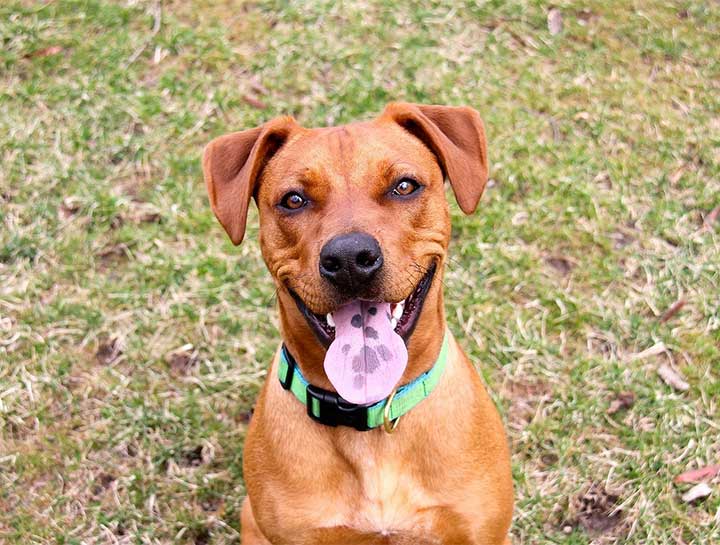Canine Influenza in Montana!

For the first time, Canine Influenza has been diagnosed in Montana. (January 12 Helena article here).
We hope our information below helps pet owners better understand the virus and aids in prevention!
History:
Canine Influenza was first diagnosed in dogs in the USA in 2004 – during an outbreak in Florida. This strain or type of canine influenza was H3N8. Since then, it has caused small pockets of infection around the country, but not in Montana.
In 2015, there was a large outbreak of canine influenza in the midwest/Chicago area. This outbreak was a different strain of canine influenza – it was H3N2. It made the news because it was highly contagious and approximately 5 of the 1000 infected dogs actually died from the infection.
Fast forward to January 2016. In Helena, Montana, a dog was diagnosed with canine influenza strain H3N2. This is the same strain that caused disease in the midwest in 2015
Is there a Vaccine?
Currently, there is a commercially available canine influenza vaccine but it is only effective against the H3N8 strain.
Zoetis (Pfizer) is working on a vaccine for the H3N2 strain, but it hasn’t completed all of the required testing. This vaccine is “Conditionally Licensed” for use in dogs. Simply stated, the preliminary safety and efficacy (effectiveness) studies in dogs (approx. 600 dogs) found no evidence of harm other than the usual vaccine-associated adverse effects. The preliminary tests showed that the vaccine reduced virus shedding in vaccinated dogs compared to placebo controls after challenge with the H3N2 strain. Long term safety and efficacy studies are underway but, because these tests take time, they have not been completed yet.
Should I vaccinate my dog?
The choice of whether or not to vaccinate should be based on the pros/cons of the vaccine and the risk of exposure. H3N2 canine influenza is highly contagious but doesn’t survive very well in the environment. Because of this, any place where dogs congregate in large numbers (boarding kennels, shows, traveling, going to dog parks, training classes, and performance competitions) means there is an increased risk of exposure to your dog. If attending these facilities is unavoidable, vaccination should be considered. Dogs that have diseases or treatments that suppress the immune system (e.g. corticosteroids, cancer etc.) are at higher risk. If your dog stays mostly at home and is healthy, their risk is relatively low.
What are the clinical signs of canine influenza?
Canine influenza is highly contagious and can cause signs ranging from mild fever and lethargy to severe, life-threatening pneumonia. Most infected dogs have signs/symptoms that are typical of kennel cough.
How is canine influenza diagnosed?
Tests that broadly detect influenza A virus (e.g., broadly targeted influenza A real time RT-PCR) should effectively detect both H3N8 and H3N2. However, tests targeted directly at H3N8 are unlikely to identify H3N2 infection because of limited cross-reaction between H3N8 and H3N2 antibodies.
How can I prevent infection?
For dog owners living in the affected areas, the best prevention is to minimize contact with other dogs. I would not recommend bringing dogs into areas with infected dogs (don’t take your dog with you to Helena right now). Consider avoiding places such as dog parks, dog day care, grooming facilities, boarding, training classes, and group gatherings. Walking your dog alone is low risk, as the virus doesn’t survive well in the environment.
If your dog in the affected areas has respiratory signs, such as coughing, hacking, gagging or difficulty breathing, call your veterinarian before your appointment to let them know your dog has respiratory signs so that they can take appropriate precautions to minimize the possibility of contaminating the facility. When you get to the clinic, go in first without the dog or call from your car to coordinate entrance into the facility.
Can people or other animals be infected?
Currently, there is no evidence that people can contract this virus. However, studies in Asia have shown limited transmission to cats. Whether this can happen with the strain currently involved in the U.S. outbreak is unknown.
How is canine influenza treated?
The virus is treated similarly to how we treat kennel cough dogs. We often prescribe cough suppressants. Although antibiotics have no direct action against the influenza virus, they are sometimes used to prevent secondary infections in immunocompromised dogs or dogs with severe disease. Dogs that develop pneumonia may need to be hospitalized for supportive care (fluids and intravenous antibiotics).
* Above information and facts written by Dr. Emily Gocke-Smith with reference to information published by Dr. Mark Rishniw, BVSc, MC, DACVIM
For more detailed information from VIN about canine influenza, click here.
